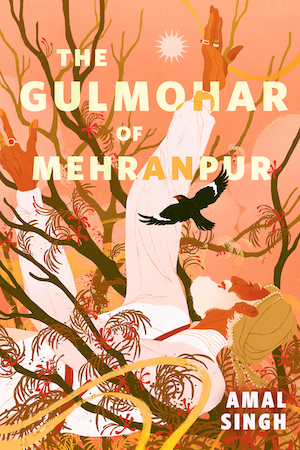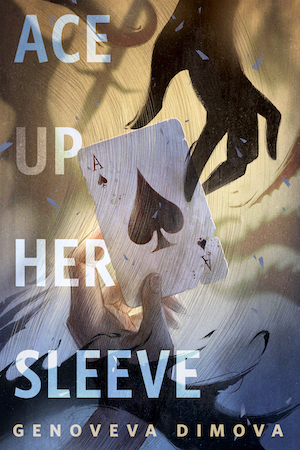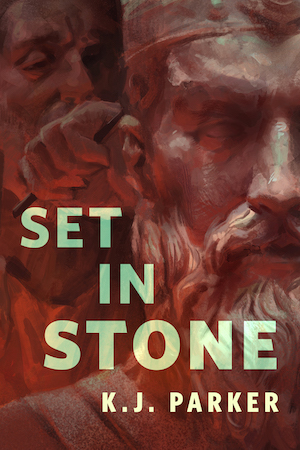Note: I’m resuming this column after several years’ hiatus due to my life circumstances in the pandemic. My work situation has stabilized in the past year and now I teach full time at the University of Kansas (my opinions, of course, only represent me and not my employer). I’m catching up on everything and I’ve written a few articles already, which will publish on an monthly basis. If you’re new to this column, make sure to read the intro post where I explain what I’m going to include, why, and how.
Today we’re taking a look at Dhalgren by Samuel R. Delany, often considered one of the great American novels and most recently included in Esquire’s list of the 75 best sci-fi books of all time. My local SFF book club recently read Dhalgren over a period of two months, and the discussion that follows owes plenty to our two meetings. We had to split the book in half, because Dhalgren is just over 800 pages long in my edition, typeset with tiny font; I’ve seen translated versions where the publisher opted to release it as multiple volumes.
Dhalgren is set in a mysterious city whose name is not Dhalgren but rather Bellona, ostensibly located in the American Midwest; but as a Midwesterner, it seemed more East Coast to me. While the rest of the US goes on with business as usual, some kind of apocalyptic event has hit Bellona, covering it under perennial clouds of smoke. The city also constantly changes shape, streets are renamed, buildings burn down and reappear intact the next day. Most people have fled, but there is also a continuous trickle of newcomers, curious to see what is going on in Bellona, escaping the draft, or visiting for reasons they might not even understand themselves.
The protagonist might fall into the last category. He arrives in Bellona not remembering his name, having lost most of his memory, and receives the name “the Kid.” He looks much younger than his age, he is a mixed-race Indigenous person who appears racially ambiguous, and he only ever wears one shoe, keeping his other foot bare. (This is a recurring motif in some of Delany’s other work as well, like in Nova.) The Kid finds a notebook and decides to write—poetry, memoirs, or something else? He also finds himself in a street gang, the scorpions (with a lowercase s), who are notable for wearing holographic projection chains which can create large, shimmering images of various creatures.
The novel covers the Kid’s meandering adventures trying to make his way in Bellona, a city where money has lost its value, where television and radio no longer work, and where strange lights appear in the sky. He comes into contact with a wide range of characters, from a former middle-class family who try to maintain their previous lives even if this requires considerable self-deception, to a Black man accused of rape who becomes a community icon and eventually his own planet, to the self-defined gatekeeper of Bellona, a white queer man and ex-Nazi who attempts to have sex with newcomers.
Kid eventually ends up in a romantic and sexual triad with a woman running a school and a teenage boy. People assume that Kid is a teenager himself, but instead of 17 he’s in fact 27, something that leads to several uncomfortable scenes—not only sexually, but in other senses as well. For instance, another poet accuses him of being popular because his readers assume he’s some kind of child prodigy, and not on the merit of his work. (We never see Kid’s poems, though we do see some of his thought processes.) This leads to some of the most intriguing sections, like the discussion with this poet and its aftermath; but some of the sections of Dhalgren I found the most frustrating are also related to this aspect of the text. It is painfully obvious that the age gap between the partners is too large; the characters reflect on it too. Yet the narrative still runs with it and dwells on it endlessly. Here’s an adult man and an adult woman—who runs a school!—who have a lot of sex with a teenage boy. There is a lot of sex, though it is written almost in a way to make sure we aren’t titillated—this is true of all of the sex in the book, not just the scenes involving Kid’s triad. I thought maybe it was just me, as an asexual-spectrum person (who is otherwise not sex-averse, though), but people in our book club seemed to agree. Yet, this still means that the reader will have to go through many pages of turn-off sex in a configuration that in itself might be a turn-off, to put it mildly. The narrative keeps returning to it. And maybe that’s the goal, but I’m not sure why.
I try to avoid spoilers, but this is really more of an inverse of a spoiler: something the book does not do, so I’ll put it here. At one point I built a theory for myself that one of the reveals would be that Kid really is a teen, he just cannot remember his own age. However, this did not bear out. Kid’s unstable and uncertain perceptions do become important in the course of Dhalgren, though—just not in that specific way.
A major theme of the novel is mental illness. Kid is mentally ill and has previously experienced psychiatric hospitalization. He’s never sure that the bizarre phenomena he witnesses in Bellona are a product of his own mind, and he repeatedly queries other people about whether they’re seeing and experiencing the same thing—to which they generally respond in the affirmative: If Bellona exists, it is strange to all.
Bellona also has no government and everyone can do however they please—of course this leads to clashes between people about what ought to be done. The scorpions go on “runs” where they… yell at people and act scary. Their weapon of choice is the “orchid” (the genital allusion is, I think, deliberate), a set of blades that can be strapped to one’s wrist, to curl over the fingers. The scorpions avoid firearms, but the white supremacists holed up in a department store have guns, and lack inhibitions about using them. The whole ambience owes a lot to no-holds-barred American Libertarianism—my edition comes with an endorsement from a Libertarian venue, and that seems on target. Another aspect of the social organization that I keep on thinking about is mentioned in this review by Kara who described Bellona as a post-scarcity society, and it is! Even though it seems like people in Bellona don’t have anything and live in crushing poverty as scavengers, when they actually need something, it just turns up: even grocery stores which had previously been looted auto-magically restock themselves.
Dhalgren has very strong atmosphere and it expresses the forced idleness, the aimlessness, extremely well. Yet this itself makes the text difficult to read. It’s 800 pages of people hanging out, punctuated by occasional moments of extremely intense experiences, like having to drag a corpse out of an elevator shaft. In a sense it’s like being a soldier, in the sense of “interminable boredom punctuated by moments of terror,” as the old adage goes. A soldier of what? And who is the soldier here—the Kid, or maybe us? Reading this novel definitely takes discipline from the reader. I would probably have given up if not for the fact that I was looking forward to our book club discussion—even though there are so many gems to discover in the text.
A lot of small details fit together in Dhalgren. Just a handful of examples, not involving major spoilers: I kept on waiting for the Labry Apartments, the middle-class family’s living place, to be called The Labrys, and it happened! At one point the author himself seems to appear in the book, at least in a reflected form. The beginning and the end also tie together neatly. Strangely enough, different editions of the text also manifest minor changes like having different street names—further illustrating the nebulous, dreamlike spatial organization of Bellona. But some mysteries are never revealed, including one I was hoping to find out up until the very last page. Maybe I missed something? Just a cursory revisit of earlier sections has already proved rewarding. Possibly even more rewarding than the first read, because being able to build these connections is what gave me the most enjoyment. For that I had to get through 800 pages first—I think this would make Dhalgren an exemplar of ergodic literature, and now that I search for this, I see Hal Duncan has made a similar argument. It’s also reminiscent of knowledge games like Outer Wilds where you piece the narrative together—or not.
Is it worth the effort? While I generally enjoy engaging with narratives in this way, in the case of Dhalgren I’m not sure. I certainly prefer Delany’s other work; when I first read Nova in my early twenties, I felt it did cyberpunk better, and earlier, than some of the canonical genre greats. Delany’s short stories have a scintillating intensity that only surfaces for moments in Dhalgren—though those are memorable moments.
Next time we’ll take a look at a space opera novel with nonbinary aliens that’s much shorter, but only the first volume in a longer series—in the meanwhile, you can share in the comments your thoughts on Dhalgren, and what was the longest SFF novel you have ever read! I’m not sure Dhalgren is mine, but it definitely has to be in the top five by length…










